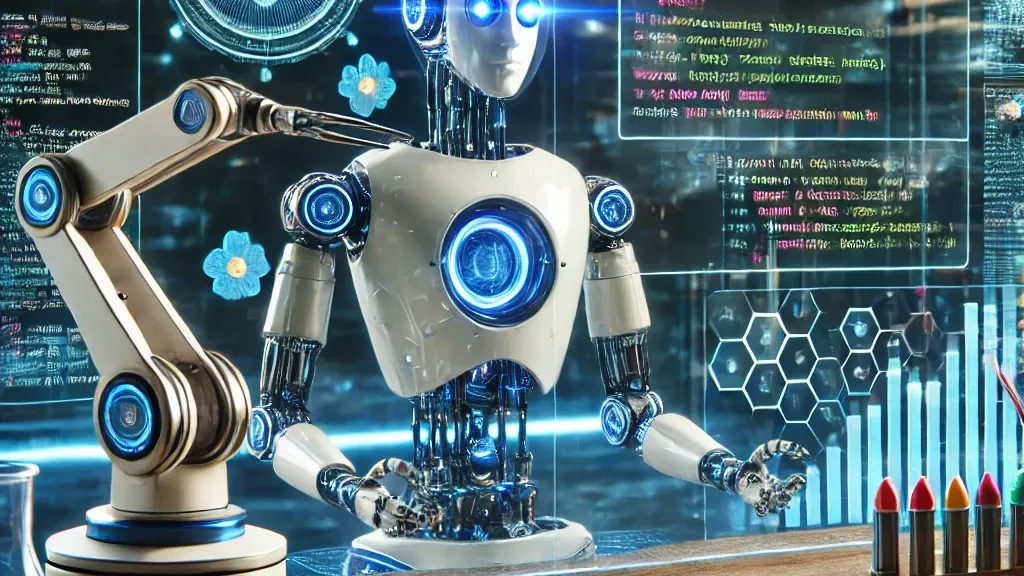In today’s rapidly evolving technological landscape, the role of AI in software testing is becoming increasingly pivotal. With the expansion of digital platforms and applications, efficient software testing has never been more crucial. The advent of artificial intelligence is revolutionizing this space, promising to enhance speed, accuracy, and reliability in the process.
In this article, we’ll delve into how AI is reshaping software testing, providing insights and practical details for professionals in the Industry QA sector. We will explore its impacts, benefits, and future possibilities, aiming to equip our readers with an understanding of this transformative technology.

Understanding AI and Software Testing
The integration of AI in software testing is more than just a technological advancement; it represents a shift in how we approach quality assurance. Traditional testing methods, though effective, often fall short when handling the complexities and scale of modern software applications.
The Basics of AI in Testing
AI in testing leverages machine learning algorithms to automate and improve the testing process. This not only enhances the efficiency but also ensures comprehensive coverage and accuracy in identifying potential bugs or issues.
Why is AI Important in Software Testing?
As software ecosystems grow in complexity, the demand for robust testing techniques follows suit. Here are some reasons why AI plays a crucial role in modern software testing:
- Speed: Automating routine tasks with AI significantly reduces testing time.
- Accuracy: AI algorithms can identify patterns and anomalies that might be missed by human testers.
- Resource Efficiency: AI reduces the need for extensive manual testing, allowing resources to focus on more complex challenges.
Key Benefits of AI in Testing
The adoption of AI tools in testing leads to several tangible benefits:
- Enhanced Test Coverage
- Reduced Time to Market
- Improved Software Quality
These improvements can help organizations streamline their processes and maintain competitiveness in their respective fields.
How AI is Transforming Software Testing Practices
AI technologies are transforming the way we approach software testing. From automating repetitive tasks to predictive analytics, AI is ushering in a new era of efficiency and reliability.
Smart Test Generation
AI can automatically generate test scripts by understanding user interactions. This leads to quicker and more efficient testing cycles.
Predictive Analytics in Testing
With the help of machine learning, AI can predict potential areas of failure in an application, allowing for proactive troubleshooting and issue resolution.
AI-Powered Decision Making
AI systems analyze vast amounts of data to provide insights into test coverage and offer recommendations on the areas that need focused testing.
AI in Performance and Load Testing
Incorporating AI into performance and load testing enables accurate simulation of varied user environments, helping teams evaluate application performance under peak conditions.
Impact of AI on Regression Testing
AI’s ability to quickly identify and highlight differences between builds streamlines the regression testing process, facilitating immediate feedback and adjustments.
The Future of AI in Software Testing
The trajectory of AI in software testing is poised to drive future innovations and efficiencies. As the technology matures, we can expect even more automated solutions, further reducing human error and refining test accuracy.
Overcoming Challenges with AI
While adopting AI in testing poses certain challenges, such as integration costs and skill requirements, overcoming these hurdles can lead to significant long-term benefits.
AI and the Role of Test Engineers
As AI systems become more prevalent, the role of test engineers will evolve, focusing more on strategic oversight and decision-making rather than routine test execution.
Machine Learning for Continuous Testing
AI systems with machine learning capabilities offer continuous testing environments, where feedback loops are instantaneously sewn into the development cycle, greatly enhancing agile practices.
Conclusion
The integration of AI in software testing marks a significant shift towards more adaptive, precise, and efficient quality assurance processes. By embracing AI, professionals in the Industry QA sector can leverage these tools to meet growing demands and deliver higher-quality software.
For more insights on how LambdaTest AI Testing tools can be integrated into your QA processes, explore our additional resources.

FAQs
What is AI in software testing?
AI in software testing involves using artificial intelligence to automate and enhance various aspects of testing processes, leading to increased efficiency and accuracy.
How does AI improve software testing?
AI improves software testing by automating routine testing tasks, providing predictive analytics, and generating smarter test cases, thus speeding up the quality assurance process.
Are there any challenges in using AI for testing?
The main challenges include initial setup costs, integration complexities, and the need for specialized skills to manage AI tools effectively.
This article contains affiliate links. We may earn a commission at no extra cost to you.

